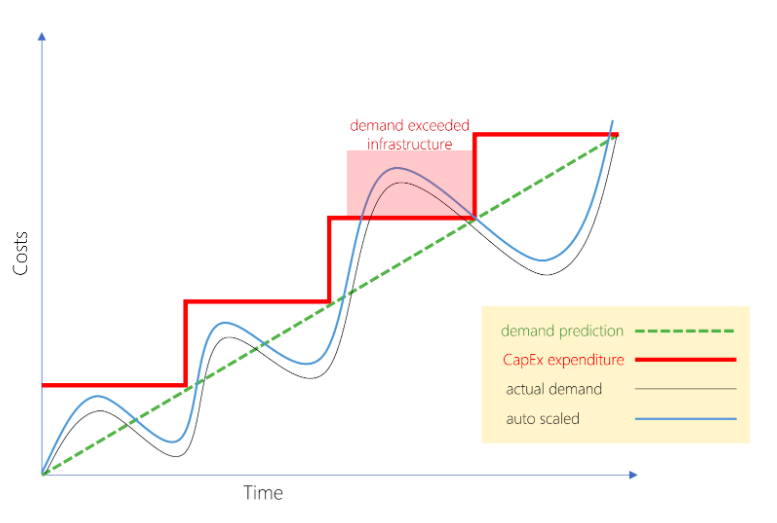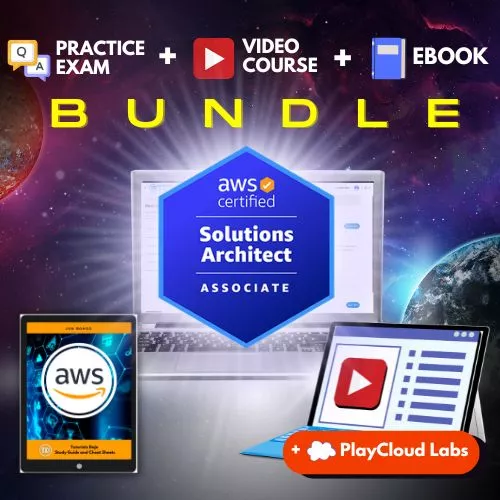Last updated on November 1, 2025
Capital Expenditure (CapEx)
- Upfront cost on physical infrastructure
- You need to plan your expenses at the start of a project or budget period.
- CapEx computing costs:
- Server costs – server clustering, redundant power supplies, and uninterruptible power supplies.
- Storage costs – centralized storage and fault-tolerant storage for critical applications.
- Network costs – cabling, switches, access points, routers, wide area networks, and Internet connections.
- Backup and archive costs – backup maintenance and consumables like tapes.
- Organization continuity and disaster recovery costs – recover from a disaster and continue operating using backup generators.
- Datacenter infrastructure costs – costs for construction and building equipment.
- Technical personnel – technical expertise and workforce to install, deploy, and manage the systems in the data center and at the DR site.
Operational Expenditure (OpEx)
- No upfront cost but you pay for the service/product as you use it
- OpEx is particularly appealing if the demand fluctuates or is unknown
- OpEX computing costs:
- Leasing software and customized features – responsibility to de-provision the resources when they aren’t in use so that you can minimize costs.
- Scaling charges based on usage/demand instead of fixed hardware or capacity – plan for backup traffic and disaster recovery traffic to determine the bandwidth needed.
- Billing at the user or organization level – when using a dedicated cloud service, you could pay based on server hardware and usage.
Validate Your Knowledge
Question 1
Question Type: Hotspot
For each of the following items, choose Yes if the statement is true or choose No if the statement is false. Take note that each correct item is worth one point.
For more Azure practice exam questions with detailed explanations, check out the Tutorials Dojo Portal:
References:
https://docs.microsoft.com/en-us/azure/cloud-adoption-framework/strategy/business-outcomes/fiscal-outcomes
https://docs.microsoft.com/en-us/learn/modules/principles-cloud-computing/3c-capex-vs-opex





















